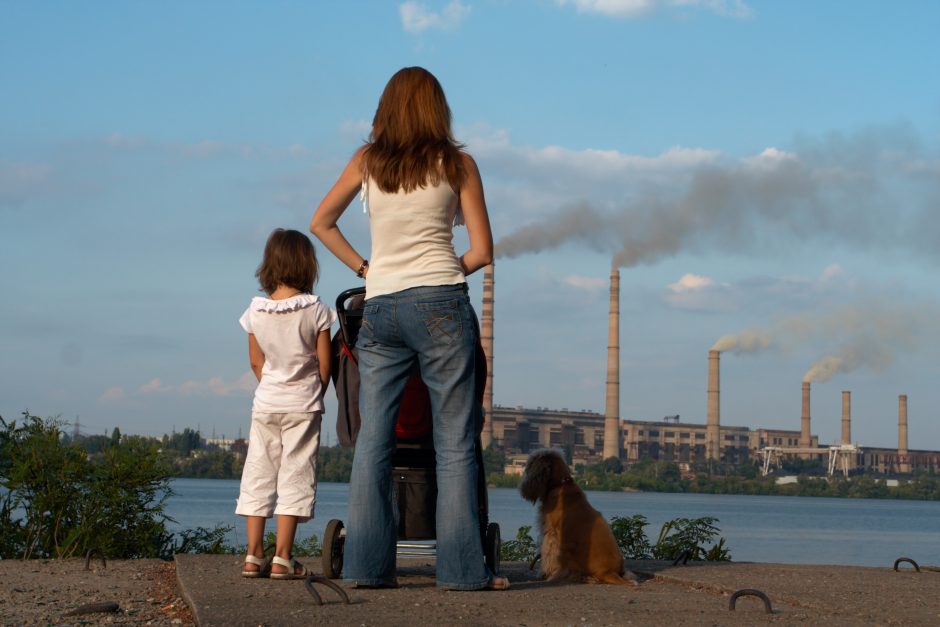A systems perspective is key to tackling the health effects of pollution

The Lancet Planetary Health released the report, “Pollution and health: A progress update,” on 17 May 2022. The report finds that pollution is responsible for approximately nine million deaths per year, corresponding to one in six deaths worldwide, making it the world’s largest environmental risk factor for disease and premature death. As human health, pollution, climate change and biodiversity loss are closely linked, systemic approaches such as those deployed by Climate KIC are best positioned to make an impact.
According to the report, deaths caused by modern forms of pollution (e.g. ambient air pollution and toxic chemical pollution) have increased by 66 per cent over the past two decades, due to industrialisation, uncontrolled urbanisation, population growth, fossil fuel combustion and an absence of adequate national or international chemical policy.
While there was a decrease in deaths from household air and water pollution, pollution still causes more than nine million deaths each year globally, a number that hasn’t changed since 2015.
The Lancet Commission on pollution and health also noted that over 90 per cent of pollution-related deaths occur in low- and middle-income countries. According to The Lancet Commission, the most pressing challenges to focus on are air pollution, lead poisoning and chemical pollution. In fact, air pollution still causes over 6.5 million deaths each year globally, while lead and other chemicals are responsible for an estimated 1.8 million deaths each year globally.
Most countries have done little to deal with this enormous public health problem, stresses the report. Likewise, pollution control receives little attention in either official development assistance or global philanthropy.
Yet, the triad of pollution, climate change and biodiversity loss are the key global environmental issues of our time. These issues are intricately linked and solutions to each will benefit the others.
The Lancet experts conclude that we cannot continue to ignore pollution. We are going backwards.
Climate KIC’s systems approach
As elucidated in its strategy “Transformation, in time” Climate KIC deploys systems thinking to approach global ‘wicked problems’ such as pollution, climate change and biodiversity loss, connecting these issues not only to one another, but also to their impacts on human health, well-being and livelihoods.
Climate KIC’s Deep Demonstrations are large-scale projects through which it offers its ‘systems innovation as a service’ model to Europe’s most ambitious challenge owners – i.e. the mayors, government ministries, industries and community leaders, and funders who have the means and mandate to tackle Europe’s biggest climate change challenges.
The Just Transformations Deep Demonstration works with coal-producing regions or regions with polluting, heavy industries. People living in such regions and engaged in these sectors are more vulnerable to the health effects of pollution. They are also at risk of economic hardship during the transition to carbon neutrality. Therefore, a ‘just transition,’ or a transition that secures the rights and livelihoods of people working in those polluting industries, is required.
The NetZeroCities programme, led by Climate KIC, will help the cities selected to be part of the European Commission’s Mission on Climate-Neutral and Smart Cities decarbonise, including through clean mobility, energy efficiency and green urban planning. These tactics not only mitigate climate change and encourage biodiversity, but also reduce pollution and its impacts on human health.
Cities such as Leuven, Madrid, Amsterdam, Milan and Edinburgh are part of Climate KIC’s Healthy, Clean Cities Deep Demonstration, a programme that helps cities innovate on mobility, waste, energy, health, the built environment and more. The programme can be replicated for individual cities to suit local challenges and needs.
Through its entrepreneurship activities, Climate KIC has supported clean energy innovations like Naked Energy’s solar technologies, SolarisKit’s solar water heaters, Solum’s solar paving, Zolar’s household solar installation kits and Brill Power’s battery management technologies.
Climate KIC has also funded research into the health effects of the climate crisis. In 1in1000’s report “The value of life: What would climate policies look like if they mirrored the COVID-19 response” it was found that by acting on climate change now, the cost of saving a life would be two to three times lower than saving a life during the pandemic.
The report “Pollution and health: A progress update” is available online.
